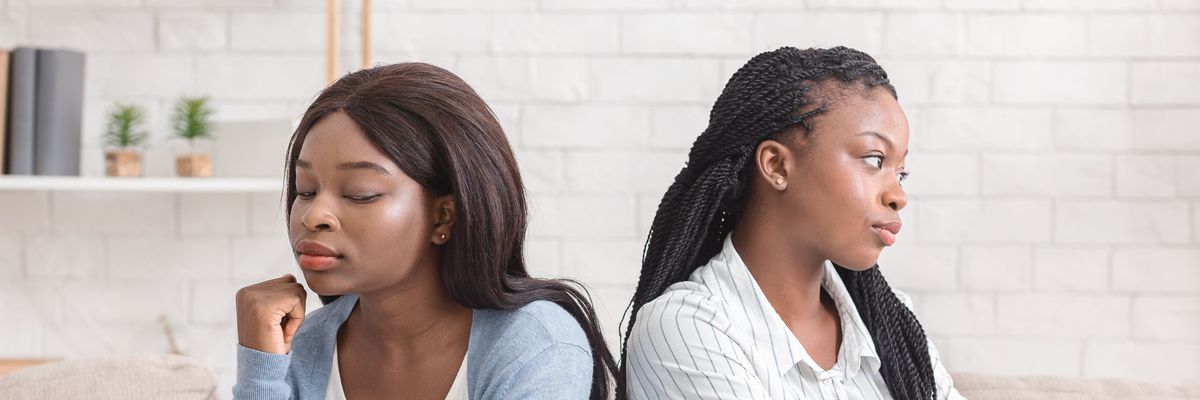
While there are women on the frontlines of both the second wave of COVID-19 and protesting, these times are impacting more than just the medical and social impact fields. Mental health affects people young, old, tall, short, Black, white, or Indigenous. Placing our minds first is easier said than done, but it is imperative to remember that we cannot function physically, emotionally, or mentally without our brains.
No matter your work in the medical field, photography, styling, or modeling, these times are rough for any Black woman and may be enough to knock anyone to their knees, but these women stand tall and firm while being emotionally and mentally aligned with themselves first.
xoNecole caught up with a few women spread throughout various lines of occupations about managing and prioritizing their mental health, how recent events in Black America have impacted their careers, and the state of their mental health as a result.
Alysha P., Cinematographer/Producer and 1/5 of 'Black Girl Podcast'
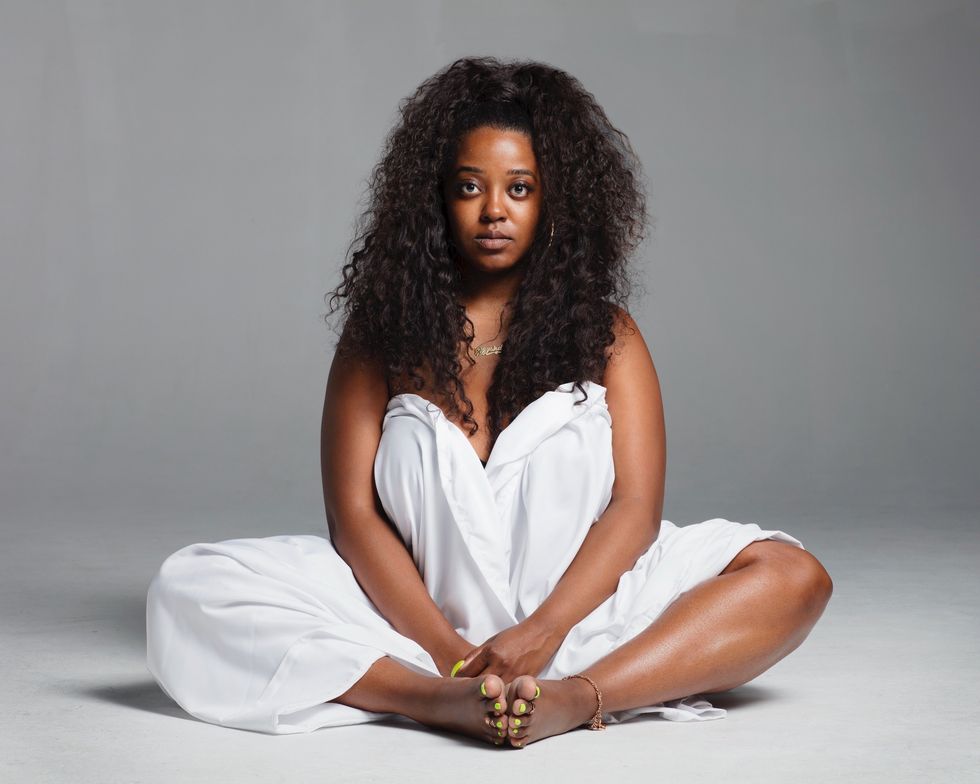
Courtesy of Alysha P.
How has your line of work been impacted by recent events in Black America?
All companies are taking this time to do their due diligence and work from the inside out. I think that's extremely commendable if the intentions are pure. Very real and difficult conversations are being had across all industries. I am personally showing up in this moment by using my voice to advocate for us. My goal is to make sure we are heard, seen, respected and understood on all fronts.
How has your mental health been impacted in relation to how recent events have affected your occupation/studies?
When the pandemic first broke loose, I had extreme anxiety. I had no idea it was anxiety until my therapist called it out in one of my sessions. In that moment, I knew I had to lean into the healing. I had to become still, patient and very compassionate with myself. I had to give myself grace. Once I was able to identify and contain the stress and anxiousness, a beautiful awakening started to bloom. I began to love me. I never imagined that I would find such peace and self-awareness healing through a time of absolute chaos and pain within the Black community. This peace has allowed me to become more efficient with all of the work that I do. My confidence is more apparent. I'm fearlessly advocating for what I believe in. My creative juices are overflowing. And quite frankly, I'm just getting things done.
I'm very grateful the world became still. It's allowed me to hear the noise and turn off the levels that no longer serve me. What I thought would break me down during this revolution is actually fueling my fire.
"I had to lean into the healing. I had to become still, patient and very compassionate with myself. I had to give myself grace. Once I was able to identify and contain the stress and anxiousness, a beautiful awakening started to bloom. I began to love me. I never imagined that I would find such peace and self-awareness healing through a time of absolute chaos and pain within the Black community."
How do you manage your mental health?
I manage my mental health by continuing to make sure I carve out 45 minutes a week to show up for myself via my sessions. Regardless of where I am or how I'm feeling, I make sure that I am prepared and ready for my session. I also do the work. A therapist doesn't magically heal you. You have to be willing to do the work. Whether it's journaling, taking time to process my session, cry, ride my bike, taking a beat or creating some content, I have made it my business to become more intentional with my time, space and those I let into my world. That's all part of healing. I also prioritize my needs first. That's new to me, something I've never really done before. I've learned how to set boundaries throughout every avenue of my life. It's literally changed me for the better. Protecting my peace, surrounding myself with people that genuinely love me and pouring love back into me that I once poured into others are the keys to my mental wellness journey.
Bre Johnson, Freelance Photographer for Bre Johnson Photography
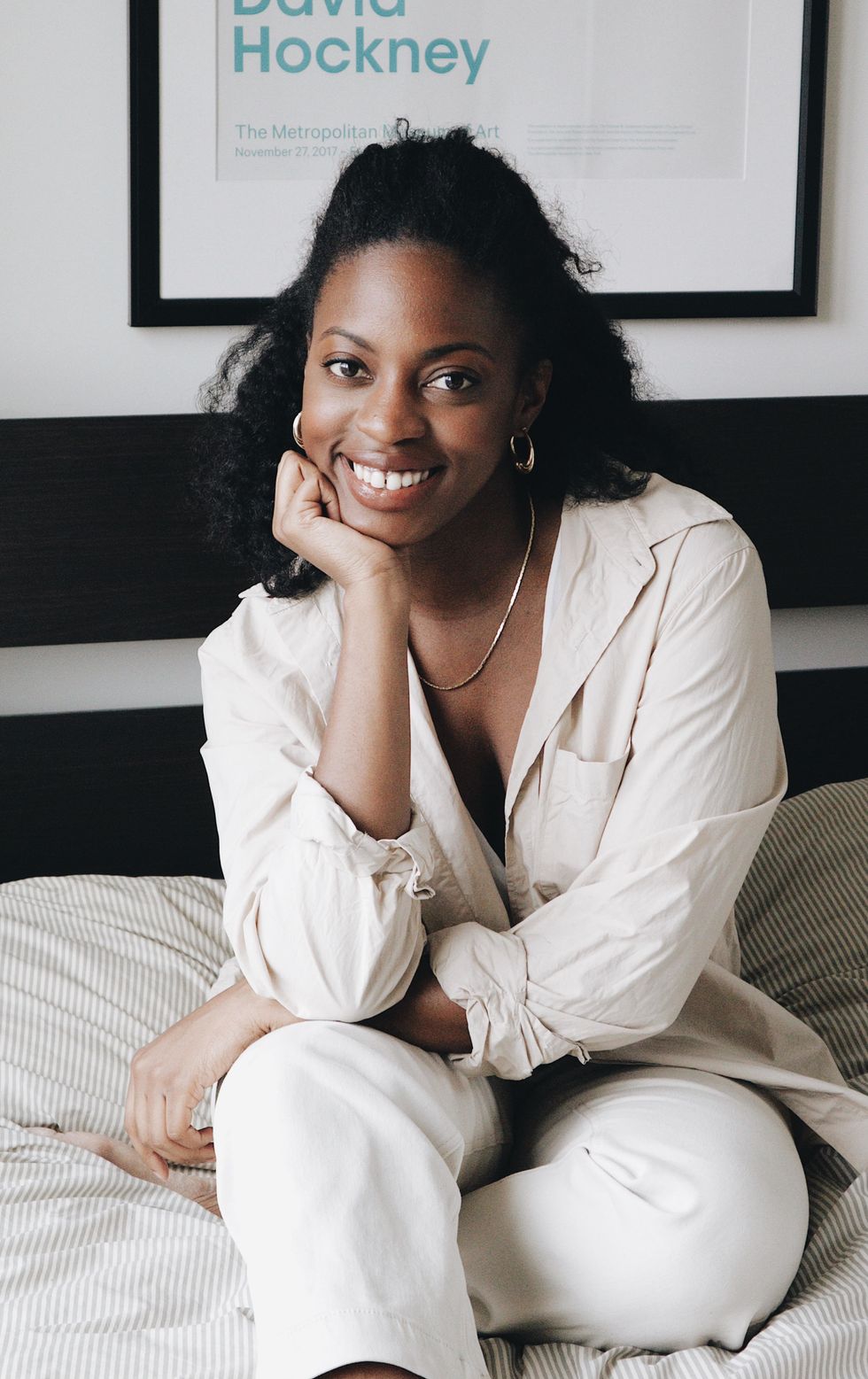
Courtesy of Bre Johnson
How has your line of work been impacted by recent events in Black America?
As of now, I've been devoting my time to my photography passion and my line of work has been impacted positively by the recent events in America. Now more than ever, Black photographers are being sought after for their vision and voice and this is a perfect time for me to be active in the photography world and put my work out into the universe.
How has your mental health been impacted in relation to how recent events have affected your occupation/studies?
At the start of the pandemic my mental health was spiraling. I found myself to be hopeless because I didn't have steady income coming in and my photography plans seemed pointless with social distancing. However, after talking with family/friends and listening to my daily affirmations, I bounced back and my mental health is more balanced than before. I now understand that I have full support from people who want to see me succeed and that pushes me to continue to capture our stories and emotions despite recent events.
How do you manage your mental health?
The best methods for me to manage my mental health is burning Palo Santo and reciting positive affirmations, listening to rags to riches stories on various podcast platforms, journaling my thoughts, a calming bath, burning candles, and just breathing, reminding myself that all is OK.
Tiyanna Washington, LMSW, Founder and CEO of Tspeaksnyc, LLC
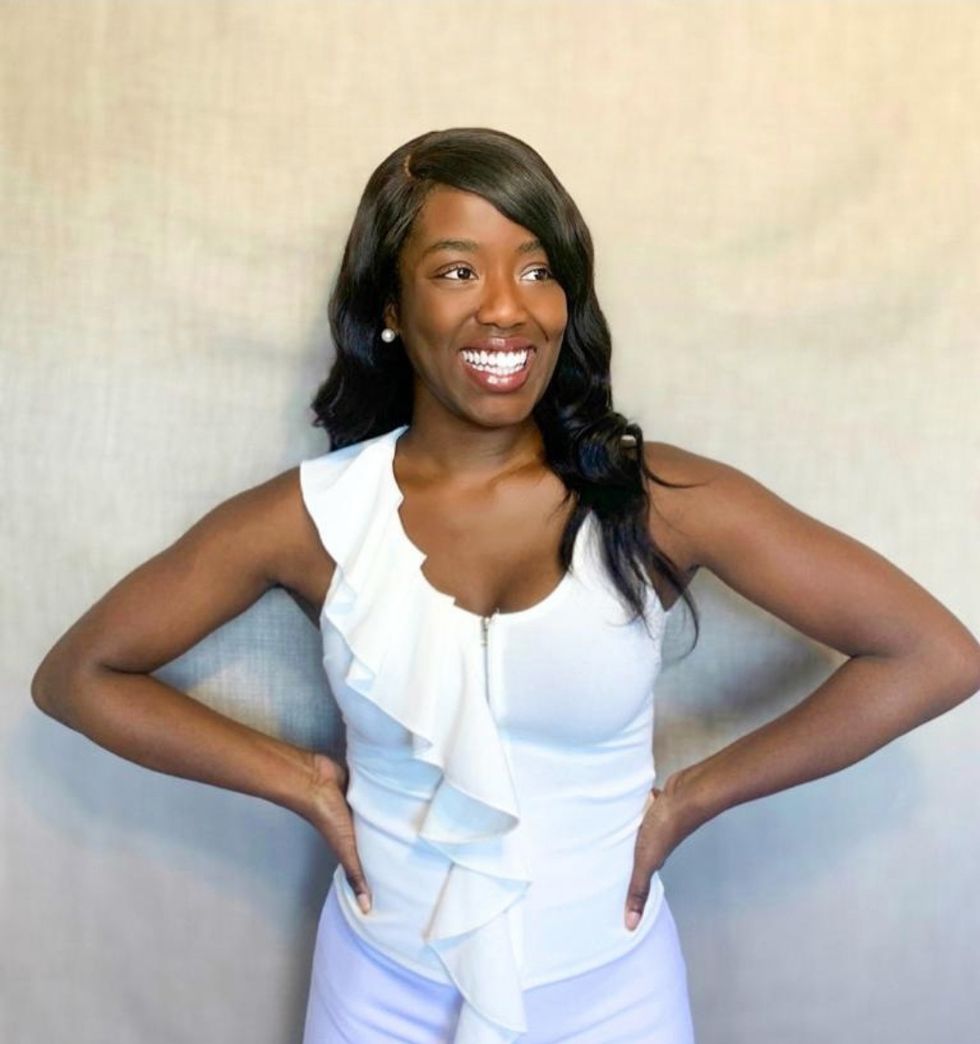
Courtesy of Tiyanna Washington
How has your line of work been impacted by recent events in Black America?
I think now more than ever it's being recognized that there is a need for more therapists of color. I've had a lot more clients reaching out specifically seeking a culturally responsive mental health professional that can understand the racialized traumas that exist in communities of color. I've seen an increase of anxiety-based symptoms with my clients, [including] rapid heartbeat, trouble sleeping at night, persistent feelings of sadness, irritability, [and] headaches that have been directly tied to recent news and media coverage of Black men being killed and the overall state of being Black in America. Folks are actively looking for and seeking ways to process, manage and cope with their thoughts and feelings as it pertains to the profound impacts of racism we are collectively experiencing.
How has your mental health been impacted in relation to how recent events have affected your occupation/studies?
I definitely find myself in a space of appreciating solitude a lot more. With recent events, for many of us, there's this need to want to be informed but sometimes it can feel overwhelming. There have been days when that overwhelming feeling has had a direct impact on my overall mood. [There's] this interesting parallel experience of witnessing what my clients are going through and very much being able to relate because I, too, am experiencing those similar feelings.
"With recent events, for many of us, there's this need to want to be informed but sometimes it can feel overwhelming. There have been days when that overwhelming feeling has had a direct impact on my overall mood. [There's] this interesting parallel experience of witnessing what my clients are going through and very much being able to relate because I, too, am experiencing those similar feelings."
How do you manage your mental health?
As a mental health professional, there's no textbook or manual that teaches you how to hold space for others during a global pandemic and a civil rights movement at the same time. In particular, for therapists of color, we are holding space for others in ways folks could not imagine. For me, finding quiet time during my day helps me to decompress. I'll silence my phone, won't schedule any sessions during that block of time and just allow myself to be. Meditation and music helps to lift my mood tremendously, so I am very intentional about setting aside time during my day to enjoy those very things that bring me peace and comfort.
Niani B., Hair Stylist and Founder of Beaute Anthologie
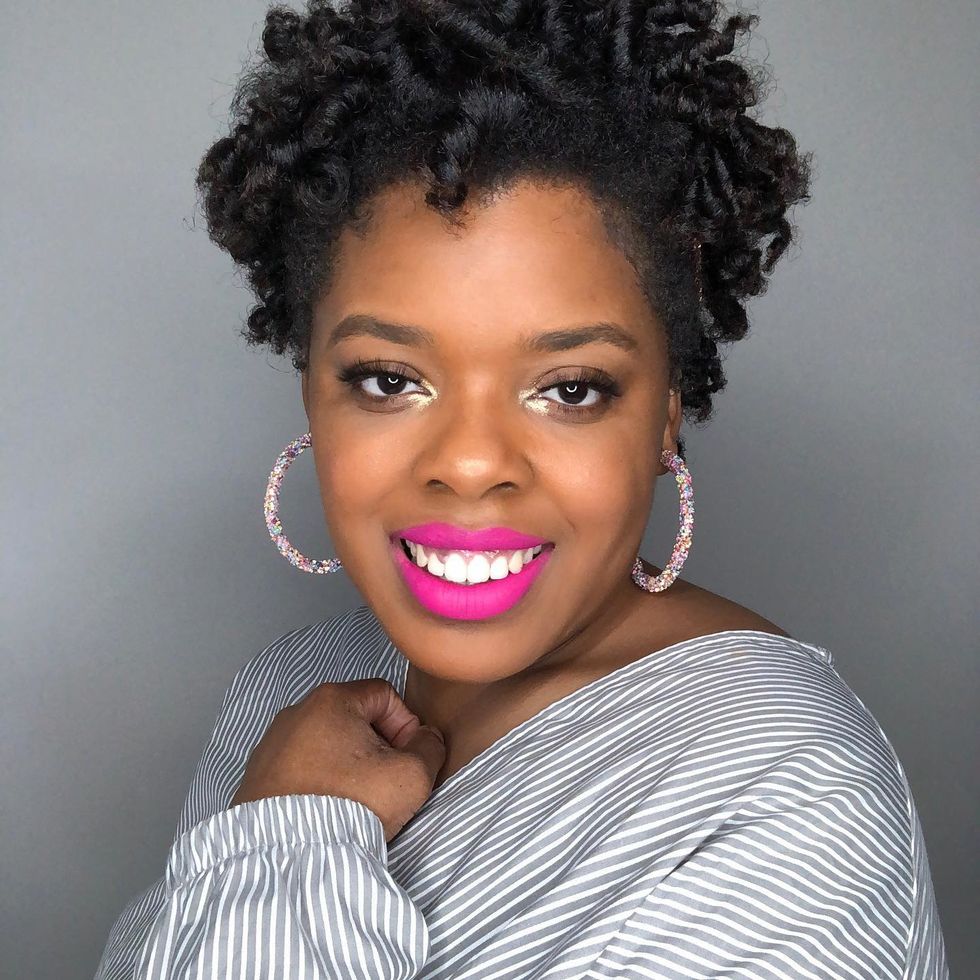
Courtesy of Niani B.
How has your line of work been impacted by recent events in Black America?
Conversations about racism in America have brought attention to how Black hair stylists in the industry are undervalued and overlooked. Black hair stylists have to work twice as hard for opportunities that reflect their skill level, even though there is a demand in the industry.
How has your mental health been impacted in relation to how recent events have affected your occupation/studies?
It can be discouraging knowing that only a handful of Black hair stylists make it to where I want to be in the industry and this can sometimes be depressing, especially when I start to feel like all of my hard work still might not be enough to help me reach my goals - not because I'm not deserving. This can sometimes make me feel helpless.
How do you manage your mental health?
I usually do things that make me feel happy, self-care, which helps to keep me from feeling consumed by the negative impact racism has on my people around the world. Self-care for me does not look like a nail appointment [or] a massage, but instead [like] dance and music. If I'm feeling down, I turn on my favorite reggae [or] Afrobeat playlist and jam it out. I am also looking into finding a Black therapist to help me increase my ability to maintain my mental health, especially in today's climate.
Kaya Nova, Singer-songwriter, Founder of GROW/N, and Creative Consultant
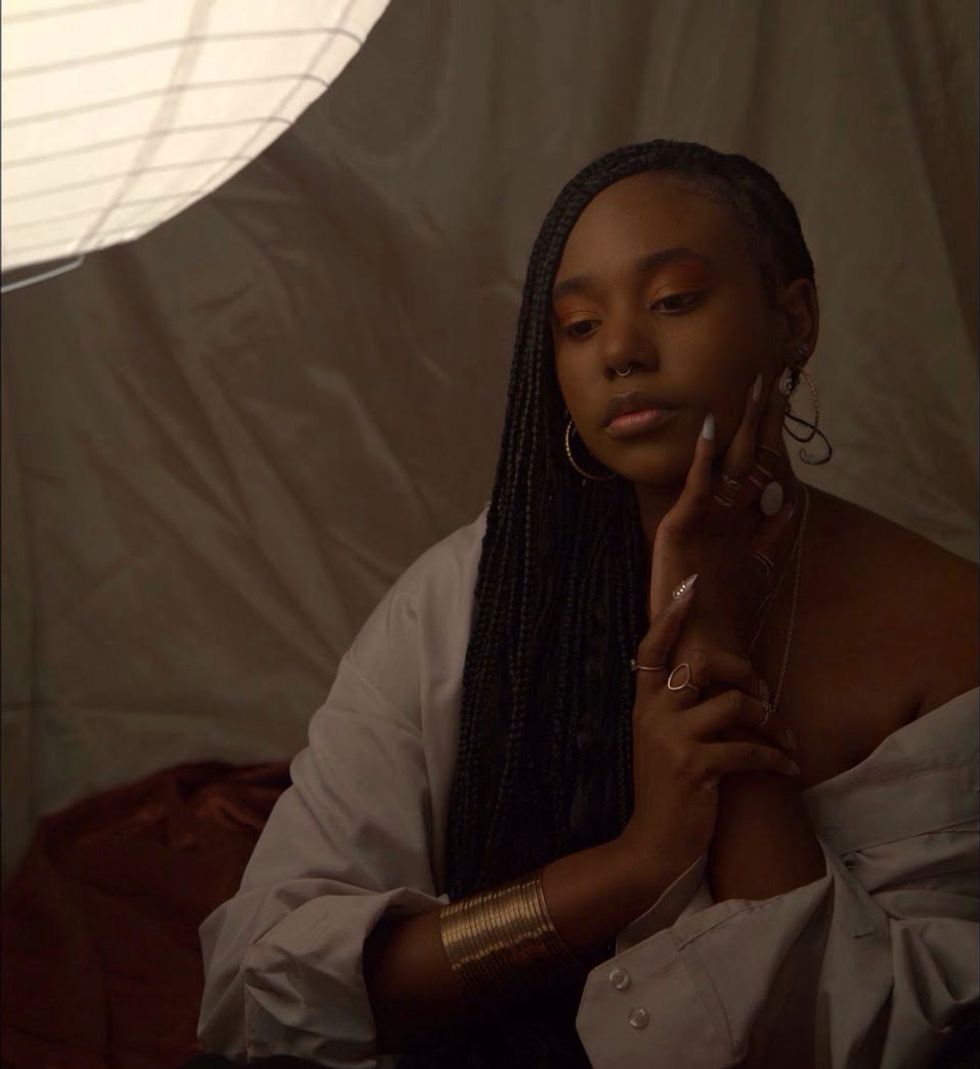
Courtesy of Kaya Nova
How has your line of work as a singer, songwriter and creative been impacted by recent events in Black America?
It made me realize how important it is to continue to create space for other Black creatives to feel empowered by their own voices and share them. It also made me feel more responsible in the work that I do. I've always taken what I do seriously, but even more so I recognize how artists are servers of the community. It is our job to take these painful stories and amplify, process, and somehow create peace around them for our people. It's our job sometimes to communicate what is happening in the world to those who may not understand. It's a heavy job that I don't take lightly. And now I walk in that even more.
How has your mental health been impacted in relation to how recent events have affected your occupation/studies?
I honestly am so used to dealing with so many things as a multidisciplinary in the industry, but I will say this is the first time I've felt true sadness and grief around what's happening. We've been hearing these stories for years now, and I don't think I ever knew how to make emotional space to feel them—so I went numb. But recently, I found grief taking over my body, I stepped away from work, I had to address some of the white clients I work with, there were days I cried, or didn't do anything at all. It took me a while to figure out how I can truly be helpful, but when I did it helped me reclaim some of my peace.
"I've always taken what I do seriously, but even more so I recognize how artists are servers of the community. It is our job to take these painful stories and amplify, process, and somehow create peace around them for our people. It's our job sometimes to communicate what is happening in the world to those who may not understand. It's a heavy job that I don't take lightly. And now I walk in that even more."
How do you manage your mental health?
I haven't shared this publicly yet, but I started anxiety medication about a month ago. One unique thing about anxiety is how it lingers in your body, and triggers other body trauma from your childhood and teen hood. There's things your mind can process that your body hasn't let go of, and I found myself feeling mentally "OK" but struggling with an anxious body—racing heart, body tension, agitation.
And now many of us find ourselves dealing with triggers both in our living situations with social distancing, and in our communities with violent racism, so anxiety is a very big issue. For my own coping, I take medication and also practice a daily routine, exercise, laugh, cry, unplug from social media when I need to, rely on my support system and be as gentle with me as I can while I continue to heal.
Elyse M. Love, MD, Dermatologist at Spring Street Dermatology
How has your line of work been impacted by recent events in Black America?
My work has become more fulfilling in the current climate. My clinic is full of Black faces, and we are all dealing with so much emotional trauma that we have buried. I feel lucky to be able to create a safe place for Black wellness, Black pride, and Black beauty. The ability to help Black people feel beautiful in this current climate feels a little like a superpower, mostly in that it recharges me to continue to read, listen, and speak.
How has your mental health been impacted in relation to how recent events have affected your occupation/studies?
I am exhausted. I am in the early phase of building my career. When NYC Pause happened, I felt like I was running at full speed professionally and then hit a wall. In the coming weeks, as the realization of how COVID disproportionately affects minority communities became obvious, I was overwhelmed with anxiety for my family's safety and sorrow for my community. As I began to recover from that and began to create new ambitions for 2020, Ahmaud Arbery, Amy Cooper, and George Floyd hit the nation in a wave that has not stopped. I am doing my job and I am doing it well, but I am doing no more than that. I see my white colleagues who are building, and I'm honestly too tired to dream right now.
How do you manage your mental health?
It has been important for me to readjust my expectations for myself during this time. I have also given myself permission to rest and take a break. I know that on my off days, someone will step in to fill that spot, and I will do the same when it's someone else's time to rest. If I spend the day on the couch doing nothing, I say to myself "I needed that" instead of "I wasted that time."
J’na Jefferson - Music/Culture Writer and Staff Writer, The Root
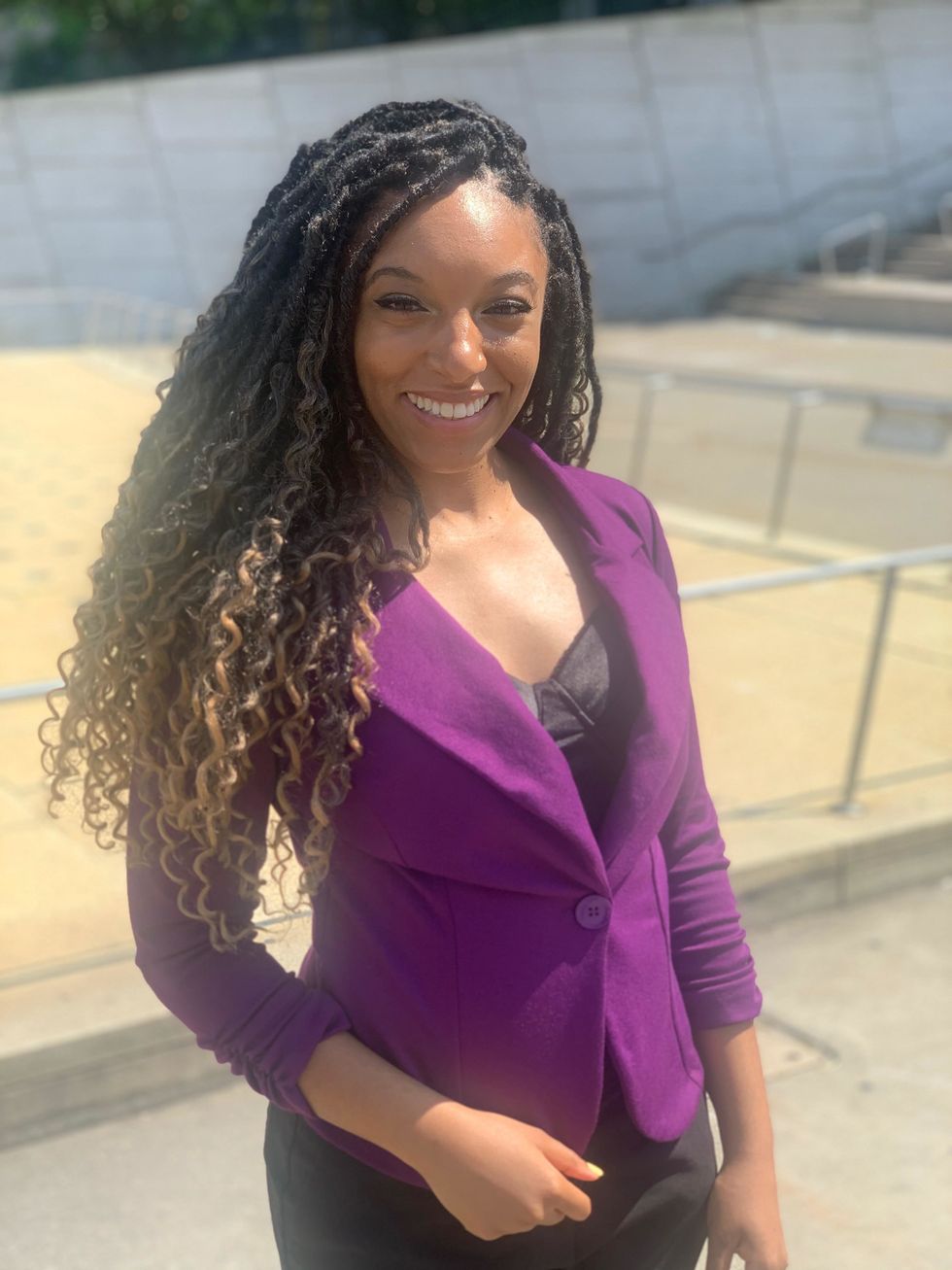
Courtesy of J'na Jefferson
How has your line of work been impacted by recent events in Black America?
Considering The Root is all Black everything, I unfortunately can't get away from some of the more trying events in our community. Even though my beat is primarily entertainment and culture, it's all aligned, and sometimes, I cover hard news as well, which involves some pretty devastating reports. For the most part, not much has changed in my day-to-day operations, but the content itself has gotten a lot more serious. Because of that, our response to reporting and aggregating the content has to be razor sharp, clean, and well-thought, since we're getting more traffic to the site.
How has your mental health been impacted in relation to how recent events have affected your occupation/studies?
I'm a heavy empath, so my feelings regarding certain situations and topics are often manifested in my physical and emotional responses. For example, I was upset about Kobe and Gianna Bryant's death for at least three days, and couldn't sleep because of it. A similar phenomenon has occurred with the stories about Black lives being taken by police, even with all of the Black Lives Matter protests happening throughout the country. I've had trouble sleeping and am triggered by the news a lot, which as a news journalist, is a different kind of agony. Actually, a few weeks ago, I realized I had enough, and took the entire week off of work to unwind and get my mental well-being back in order. I went down to my home state of New Jersey, went swimming, saw a few friends and just relaxed. I rarely opened my computer or social media because I knew the bulk of my stress was from what I was seeing on the news and what I had to report on.
"I've had trouble sleeping and am triggered by the news a lot, which as a news journalist, is a different kind of agony. A few weeks ago, I realized I had enough, and took the entire week off of work to unwind and get my mental well-being back in order. I went down to my home state of New Jersey, went swimming, saw a few friends and just relaxed. I rarely opened my computer or social media because I knew the bulk of my stress was from what I was seeing on the news and what I had to report on."
How do you manage your mental health?
I've been a lot more on top of my mental health and how I respond to recent events in the news. I try to make sure to log off Twitter as soon as I'm finished writing, so I can rid my brain of the stuff that troubles me and the conversations that I don't need to be a part of for my own sanity. That's been extremely helpful to be (somewhat) out of the loop for a few hours of the day. I also do things that make me feel good, like go for walks, watch a little mindless TV, read, and FaceTime my friends. I've also met up with loved ones to do things like run errands or grab a small bite to eat, just to get out of the house and have a conversation with someone.
Featured image courtesy of Kaya Nova
Originally published on July 29, 2020
- We Need To Talk About Black Women & Suicide - xoNecole: Women's Interest, Love, Wellness, Beauty ›
- Depression & Sex: How Mental Health Affects Sex Life - xoNecole: Women's Interest, Love, Wellness, Beauty ›
- Black Mental Health Impact News - xoNecole: Women's Interest, Love, Wellness, Beauty ›
- I’m A Black Woman, A Lawyer & I Have ADHD - xoNecole: Women's Interest, Love, Wellness, Beauty ›
- Top Stress Triggers For Black Women At Work - xoNecole ›
Your December 2025 Monthly Horoscopes Are All About Surrender & Alignment
December is about letting go. We end the year with the need for more peace, reflection, and rejuvenation, and that is exactly what December is providing for us. The Sun is in Sagittarius, and anything is possible. This is the month to believe in that and to know that the universe is supporting you. With a Supermoon in Gemini as we begin the month as well, we have an opportunity to gain the closure we have been looking for this year and to wrap up old projects, ideas, and communication breakthroughs.
This is the month to make your peace the priority and let go of trying to control the way the tides are turning. Trust in your new beginning, and give yourself time to prepare for it this month.
A big part of the clarity that is coming through this month is due to Neptune going direct in Pisces on December 10, after being retrograde here since July. With Neptune now direct, we are able to see our inspiration and creativity a little more clearly, providing the perfect energy for dreams and manifestation to be built upon. The smoke is clearing, and it’s up to you to decide what you want to do with this newfound clarity that this transit is bringing. Mercury also moves back into Sagittarius on December 11, which is great for communication and clarity, and the adventures you were trying to see through at the beginning of November come around for you again with greater purpose and support.
On December 15, Mars enters Capricorn until the end of January 2026, and this is the extra push we need to make important changes and to be on the path towards greater abundance, stability, and prosperity. Mars in Capricorn takes care of business, and we have extra energy at our disposal during this time to do so. This transit is an ideal time to focus on your career or financial goals for next year and to start putting some of these plans into motion now. A few days later, we have the New Moon of the month, which will be in Sagittarius on December 19, and this is the perfect New Moon to manifest.
The energy is high, magic is in the air, and it’s all about moving forward with the new beginnings that are inspiring you and bringing you joy to think about right now.
Capricorn Season officially begins on December 21, and this earth sign energy is how we heal, gain closure, and build new foundations in our world. With Venus also moving into a Capricorn a few days later, there is something about peace, prosperity, and security that we are gaining in life and in love as we close out the year, and this is what we need right now. This month is about reflecting on what was, letting go of old hurt, and renewing. December is an ending and a new beginning in one, and there is magic in this space to be created.
Read for your sun and rising sign below to see what December 2025 has in store for you.
 AriesKyra Jay for xoNecole
AriesKyra Jay for xoNecoleARIES
December is a full-circle moment for you, Aries. You are seeing the gifts in your world and have a lot of gratitude for the way things have come about for you as of late. There are culminations in your world that are providing you with more abundance, stability, and community, and you are exactly where you are meant to be this month. With the Sun in a fellow fire sign and in your 9th house of travel for most of the month, December is a good time to get out of your comfort zone, explore the world around you, and get your body moving.
Mars, your ruling planet, also makes a change and moves into Capricorn on December 15, which will fuel your inspiration and power in your career space. You are making a lot of professional progress as we close out the year; however, make sure to be more mindful of your competitive drive right now. The New Moon on December 19 is the perfect opportunity for you to create some new plans and goals when it comes to traveling, education, and where you want to gain some new inspiration in your world. Overall, this is a month of things coming together for you serendipitously.
 TaurusKyra Jay for xoNecole
TaurusKyra Jay for xoNecoleTAURUS
December is about trusting your intuition, Taurus. You have a lot on your mind this month, and it’s best to delegate, communicate, and allow yourself some relief by opening up to someone and not feeling like you have to hold everything in. As we begin the month, we have a Supermoon in Gemini happening in your house of income, and the plans and projects you have been building here come to fruition for you now. This is the time to gain clarity on your financial world and to take a look at what spending habits you want to let go of here as well.
With Venus in your 8th house of shared resources for most of the month, you are doing a cleanse on your commitments, partnerships, and business ventures. You are taking a look at what you want to dedicate yourself to in the future, and what commitments you may need to let go of now in order to be in the space you truly want to be, both financially and within some of your relationship dynamics. Before we end the month, we have a New Moon in this same area of your chart, and it’s time to look at the opportunities that are presenting themselves and to trust your internal guidance system to lead you forward.
 GeminiKyra Jay for xoNecole
GeminiKyra Jay for xoNecoleGEMINI
You are moving forward fearlessly this month, Gemini. December is your month of love, passion, and dignity, and you are owning the light that you shine. We begin the month with the last Supermoon of the year, happening in your sign, and you are stepping up to the plate. You are showing up, owning how much you have grown this year, and allowing yourself to heal while also acknowledging that you have done your best and you deserve to have fun in the midst of the changes you are creating.
Mercury, your ruling planet, is officially out of retrograde, and you can use this energy to the fullest potential now. With Mercury in your 7th house of love, it’s time to speak from the heart and to talk about the things that matter and that are inspiring you right now to your loved ones. You never know what kind of epiphanies you may have when you open up the conversation to others. Before the month ends, you have a New Moon in this same love area of your chart, and this New Moon is all about manifesting romance, commitment, and abundance in your world.
 CancerKyra Jay for xoNecole
CancerKyra Jay for xoNecoleCANCER
December is an opening for more love, more joy, and more freedom in your life, Cancer. You have come to a place where you hold so much gratitude in your heart for where you are today and where your heart is shining, and things come together for you with more ease right now. With the Sun in your 6th house of health, work, and daily routines for most of the month, you are getting your ducks in a row while also putting more energy and effort into taking care of yourself, your priorities, and your well-being. This month surprises you in many ways, and it’s because you are showing up.
Mars and Venus both move into your house of love, relationships, marriage, and abundance this month, and you are making strides in your love life. You have both of these opposing forces on your side and are being recognized for the love you are while also receiving the love you want. This month, overall, is about focusing more on the positives in your world and letting your heart have its joy. Before December comes to an end, there is a New Moon in Sagittarius, and this is the perfect opportunity to create the plans you want to see through next year, especially when it comes to your work life, colleagues, business ventures, and health.
 LeoKyra Jay for xoNecole
LeoKyra Jay for xoNecoleLEO
The scales of karma are balancing, and they are balancing in your favor this month, Leo. December is your month of truth, and of seeing it clearly in your world. The Sun is in your house of romance, pleasure, and happiness for most of the month, and it’s time to relax, be in the present moment, and allow what is meant to be, to be. With a Supermoon in your 11th house of manifestation as December begins, this is a powerful month for seeing your dreams come to fruition, and for feeling like the intentions you have set this year are finally here for you now.
Mars also moves into your 6th house mid-month, and this is the perfect energy to have to move into the new year. You have extra energy at your disposal right now and are feeling fearless with what is possible for you and your daily routine. Before the month ends, we also have a New Moon in a fellow fire sign, Sagittarius, and this is a breakthrough moment for you and your heart. December, overall, wants to show you how loved and supported you are and will be doing so in magical, unexpected, and concrete ways.
 VirgoKyra Jay for xoNecole
VirgoKyra Jay for xoNecoleVIRGO
December is a month of victory, Virgo. You are showing up and experiencing some new successes in your world that move you forward on your path in life. With a Supermoon in your 10th house of career as we begin the month, the effort and intentions you have made this year come into full bloom, and you are being recognized for who you are and the good work you have done. This month is all about showing up and allowing yourself to be seen and loved, knowing that you deserve the support and opportunities you are receiving.
Mars moves into Capricorn on December 15, which brings the passion and excitement into your love life, hobbies, and little pleasures in life that light you up. You want to have fun this month and are going to be walking into the new year with this fearless, happy, and spontaneous energy within you. Before the month ends, Venus also enters Capricorn, and in this same area of your chart, you have a lot to look forward to and believe in right now. Overall, December wants you to be happy and will be doing everything possible to make that happen for you. This is your month to shine, Virgo.
 LibraKyra Jay for xoNecole
LibraKyra Jay for xoNecoleLIBRA
December is a month of opportunity for you, Libra. New doors open, and you are financially making breakthroughs this month because of it. December begins with a Supermoon in your 9th house, and you are getting a clearer view of where you have been making strides in your life and how it has all brought you here to this present moment of freedom. This month is showing you what happens when you are fearless with your purpose and when you believe in yourself and what you are worthy of.
Moving further into December, Mars moves into your 4th house of home and family mid-month, and you are closing out the year in your safe spaces. You are spending more time with your loved ones and taking the time to quiet your mind and listen to what your heart has been telling you. Before the month ends, we have a New Moon in Sagittarius, happening in an area of your life that deals with communication. This is a great time for getting the answers you have been looking for and for feeling more clear-headed and confident about the decisions you are making as you move into the new year.
 ScorpioKyra Jay for xoNecole
ScorpioKyra Jay for xoNecoleSCORPIO
Patience is a virtue this month, Scorpio. December is all about remaining patient and vigilant with what you are creating in your world, and knowing that the universe has your back. It’s time to be reminded of the power of hope, and this month is an opening to greater clarity in your life. There is a lot of energy in your financial zones right now, and this is providing you with new opportunities and new insight; however, the speed at which things come about for you may feel daunting. Keep your head up and eyes focused on what you want and know that you are more than worthy of receiving it.
With Mercury in your 2nd house of income this month, December is a good time to plant new seeds and to think about where you want to be financially a month from now or even a year. This month is asking you to think bigger and to think more long-term so that you can set the appropriate plans into motion now. We also have a New Moon in your house of income before the month ends, and this is when you will see more of your dreams come to fruition in this area of your life, and have more opportunities to build. Overall, December will be teaching you a lot, Scorpio.
 SagittariusKyra Jay for xoNecole
SagittariusKyra Jay for xoNecoleSAGITTARIUS
Sagittarius Season is here, and there is a lot in store for you this month, Sag. December is all about what you are dedicating yourself to. It’s about setting your intentions and putting the work in to back up your dreams, and about getting things in order so that when the new beginnings come, you are ready for them. The Sun and Venus are in your sign for most of this month, and there are a lot of eyes on you right now. You have the potential to create a new beginning for yourself, and it’s time to invest in yourself, your love life, and your dreams.
Mercury moves into Sagittarius on December 11, and this is giving you another opportunity to see through some of the plans that you had initiated in November. Mercury was retrograde in your sign last month, and there may have been some disruptions to your vision and plans for the future, and now this energy is turning around for you. Before the month ends, we also have a New Moon in Sagittarius, and you are walking through new doors fearlessly. You are catching others by surprise by your growth this month, and you are thinking a lot about your purpose, future, and plans for the new year.
 CapricornKyra Jay for xoNecole
CapricornKyra Jay for xoNecoleCAPRICORN
December is all about the vision, Capricorn. You are moving through a lot of changes and transformations this month, yet they are giving you a chance at a new beginning in the process. You are focused more on the future and what goals you want to manifest for yourself right now, and are ready to let go of what hasn’t been working for you. With the Sun in your 12th house of closure for most of December, this is your time for healing, but remember, healing doesn’t have to be isolating or boring; you can thrive while you renew, and you are this month.
Mid-month, the excitement picks up for you, and you are feeling more energized than you have in a while. Mars moves into Capricorn until the end of January 2026, and you are being proactive with your goals, intentions, and passions. You are a force to be reckoned with this month, and you are making things happen for yourself with confidence. Capricorn Season officially begins on December 21 this year, and this is definitely speeding up your healing process. You are breaking free from what was, and with Venus also moving into Capricorn before the month ends, you are leaving this year in high spirits and with love opening a new door for you.
 AquariusKyra Jay for xoNecole
AquariusKyra Jay for xoNecoleAQUARIUS
December is all about community, creativity, and manifestation, Aquarius. This is the month to work together with others to help bring your dreams to life. You are in a space of inspiration, empowerment, and beauty, and are creating more of this energy around you and in your world. Look out for what support comes your way this month and know that you don’t have to do everything alone to succeed. With the Sun in your 11th house of manifestation and friendship, your intentions are coming to fruition, and it’s time to celebrate with the people you love and to own how far you have come this year.
On December 19, we have a New Moon in Sagittarius, lighting up your life in all of the best ways possible. This is your New Moon of freedom, victory, and magic, and you are seeing new beginnings appear that you were once just hoping for. Before the month comes to an end, Venus moves into your 12th house of closure, and after an active and successful month, you are ready to relax, heal, and give your heart some of the attention it has been asking for. You are moving into the new year with the need to release and renew what hasn’t been working in your relationships, and you are finally ready to.
 PiscesKyra Jay for xoNecole
PiscesKyra Jay for xoNecolePISCES
December is a big month for you, Pisces. You are making some huge accomplishments this month, and are feeling like everything you have been through this year has been worth it for these moments that are coming to fruition for you now. The Sun is in your 10th house of career and reputation for most of the month, and this is where a lot of your focus is right now. You are claiming your successes and putting yourself out there in ways that not only serve you, but that inspire others as well.
Neptune officially goes direct on December 10, after being retrograde in your sign since July, and you are finally seeing things a little more clearly. You are feeling renewed inspiration and passion in your life, and your intuition is your strongest asset right now. Before December comes to an end, we also have a New Moon in your 10th house of career, and what happens now not only changes things for you in the present, but it also opens new doors and what is possible for you in the new year as well. Overall, you are on top of your game this month and are owning the joy and empowerment you feel.
Featured image by Kyra Jay for xoNecole
Do You Expect Others To Read Your Mind? Here's The Problem With That.
Omniscience. If someone were to offer you $100 right this second for the definition of that word, could you immediately provide it? If you’re not sure, basically omniscience is about being able to know everything — and to those who believe in God, only he is given that honor. For those who believe in Satan? Not even he is omniscient (as much as he would like people to think otherwise).
Sometimes, it might feel that otherwise because some beings and even people are truly masterful when it comes to reading body language, observing patterns, and picking up on cues. Still, no matter how much it might seem like someone can read someone else’s mind, they can’t. It is literally impossible — and I will briefly expound on that in just a moment.
Oh, but there are plenty of people whose egos have them thinking that they can read someone else’s mind. Then there are others who have fantasies, which create unrealistic expectations that others in their lives actually should read their mind. And you know what — both of these things can cause unnecessary stress, drama, and trauma, if folks aren’t careful.
And that’s why I think it’s important that we unpack this a bit more. Because if you’re someone who thinks that if another person truly cares for you, they should be able to read your mind, it’s time to let that ridiculous yet semi-popular notion absolutely and completely go.
Here’s why.
It’s Scientifically Impossible for Someone to Read Your Mind
There are a couple of reasons why I am starting this off with R&B singer Avant. For one thing, I don’t think that he gets nearly enough flowers and secondly, clearly, this is a more-than-fitting song for today’s topic, wouldn’t you say? Because, lawd, there really is something that makes some of us feel all warm ‘n fuzzy about the mere thought of a man telling us that he is so in tuned with us that he can basically read our mind.
Hmph. Problem with that is, as I said in the intro, it is scientifically impossible (for us and for AI to do, praise the Lord!). And yet the fact that so many individuals think that they defy scientific data and research is oftentimes why there are so many breakdowns in communication — because if you run on assumption (that you can read someone’s mind) without clarification and confirmation, you can create issues that didn’t exist before you decided to fall for your own mind-reading theories.
Now to be fair, while science is still trying to figure out why we can’t read minds, what is sure is that we do have the capability to perceive the thoughts and actions of others if we’re willing to pay really close attention. However, do keep in mind that reading and perceiving are different. Reading? It’s about being able "to apprehend or interpret the meaning of" and "to anticipate, expect, or calculate by observation." Perceiving? It’s all about “to become aware of, know, or identify by means of the senses” and “to recognize, discern, envision, or understand.”
And already, do you see the differences? So much certainty comes with reading while perceiving is about humbling oneself (bookmark that) to not try to know everything but instead to try and understand what is transpiring. And since no one person (or their mind) is ever truly static, that is a huge part of the reason why believing that you can read someone’s mind — no matter how close you may be to them — is futile. You can change your mind on a dime. Others can do the same. Learning to perceive what is going on instead of assuming that you can “read” folks is far more beneficial.
Besides, you might be surprised by a particular demo who thinks that if you are truly who they need you to be, you will read their minds — and boy, once you know who they are, that may cure you of the whole “read your mind” ish…quick, fast and in a hurry.
The Expectation Is Oftentimes Rooted in Egomania
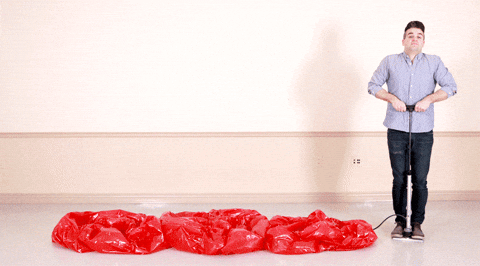 Giphy
GiphyWhile doing a bit of research on this topic, I thought it was interesting that a particular type of person kept coming up. Can you guess which one? A NARCISSIST. What I kept noticing is a telling sign of a narcissistic individual is they expect others to read their mind.
I must admit that I was caught off guard by that at first because narcissists and their damn egos are so out of control (bookmark that) that it would seem like they would be more focused on acting like they know the thoughts of other people. Here’s the thing, though — the reason why narcissists want others to read their mind is because they want you to do things like guess what they want and need before they ask — and they want that to happen because they believe that they are so damn special that you should put in the extra blood, sweat and tears to figure it all out. Hmph. Now that tracks.
Another reason why narcissists want you to be able to read their mind is so they can manipulate and deflect. Meaning, if you say and do things based on what you thought they wanted you to, should everything crash and burn, they can dodge accountability and blame you for it. Hmm, does reading someone’s mind seem romantic and beautiful now? SMDH.
And again, all of this is tied to ego because, at the end of the day, mind-reading is a form of control and narcissists are definitely very controlling people. And honestly, mind-reading is as well because why do you even want to know someone’s private thoughts before they share them and, at the same time, why would you want someone to have that kind of power in your life either? “Eww” is what immediately comes to my mind. “Yuck” is what follows.
So, why is it that so many people think that it’s a good thing to have someone read their mind — I mean, the ones who don’t show narcissistic tendencies, that is? Good question.
5 Reasons Why Some People Wish Someone Would/Could Read Their Mind
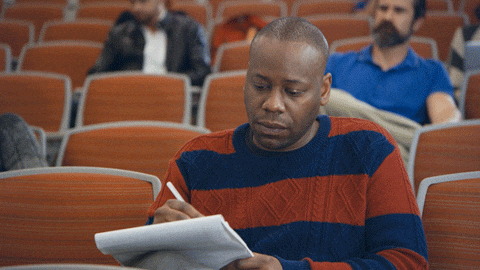 Giphy
GiphyOkay, so ego and pridefulness aside, what would be some other reasons why people think that it’s such a wonderful thing if someone who they are in some sort of intimate relationship with can read their mind.
1. They are caught up in Disney and rom-coms. One day, I am going to do an article on all of the ways that Disney and rom-coms have destroyed the reality of relationships. For now, I’ll just say that the scripted tales of both have caused a lot of people to think that if someone loves them, they should be able to read their mind. Nooo…if someone loves you, they should care to know what is on your mind. And that brings me to the second point.
2. They aren’t as good at communicating as they think. Are you a good communicator? One way to know if you are is you’re able to clearly articulate your wants and needs — because really, if you are able to do that, why should anyone even need to read your mind? Feel me? Let’s move on.
3. They want someone else to work harder at their relationships than they do. I say it in my sessions often — it’s beyond crazy to think that someone should work harder at figuring out what your wants, needs and expectations are than you are willing to express them. Hmph. It makes me think of a friend of mine who says that “should” is a dangerous word. What she means by that is saying that someone should do or not do something simply because YOU THINK that’s how it “should” go is a surefire way to stay disappointed and even be disillusioned. No, your man shouldn’t just know what you want every year for your birthday. Did you state it? If not, why aren’t you playing fair? Who has time for all of the guessing games and then getting penalized if they guess wrong? Stop it.
4. They think it’s the sign of a healthy relationship (it isn’t). Anyone who knows me knows that I am always and forever going to be Team Healthy over Team Happy and my reason why never changes. Only children expect to live in a world where they are happy all of the time — and yes, there are a lot of childish people out here. People who want their mind read? They tend to live in happy land. Meanwhile, a healthy relationship knows that clear communication, mutual respect, keen listening, patience and understanding that humans make mistakes are foundational to its success.
5. They are lazy. And yes y’all, some people want others to read their mind because they are lazy and it really is just as simple as that. Thing is, while they are being passive aggressive, dropping hints or giving the silent treatment so that you can figure out whatever it is that they…want you to figure out, that tends to take more effort than simply speaking up. Ridiculous, chile.
How to Let the Myth Go
 Giphy
GiphyGee, after reading all of this, suddenly reading minds just seems like a lot of silliness with a sprinkle of drama and potential trauma, doesn’t it? And it’s all because some people choose to treat something that is a myth like it’s a bona fide fact. SMDH.
And what if you happen to be one of those individuals? How do you break free? COMMUNICATE. Openly, clearly and maturely share what’s on your mind and heart because, the true tell of a solid relationship isn’t that someone can read your mind; it’s that they can retain what you’ve already stated.
Less reading. More perceiving. That’s the secret sauce.
And when you accept this for what it is, you will realize that it’s far better for you, your partner and your relationship to stop expecting the impossible and to accept what is actual: that learning your partner, as they strive to do the same thing with you, is better than you both assuming that you know what…maybe you do, maybe you don’t.
___
Author Frank Sonnenberg once said, “People can’t hear what you don’t say. Thinking isn’t communicating” — and I think this is a perfect place to bring all of this to a close.
Find the kind of relationship(s) where intention is so strong that mind-reading isn’t even desired.
At the end of the day, it really is as simple as that.
Let’s make things inbox official! Sign up for the xoNecole newsletter for love, wellness, career, and exclusive content delivered straight to your inbox.
Featured image by Shutterstock









